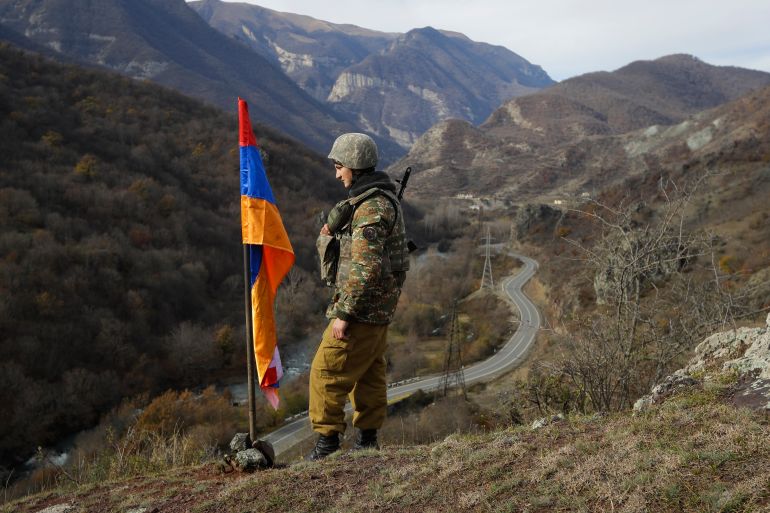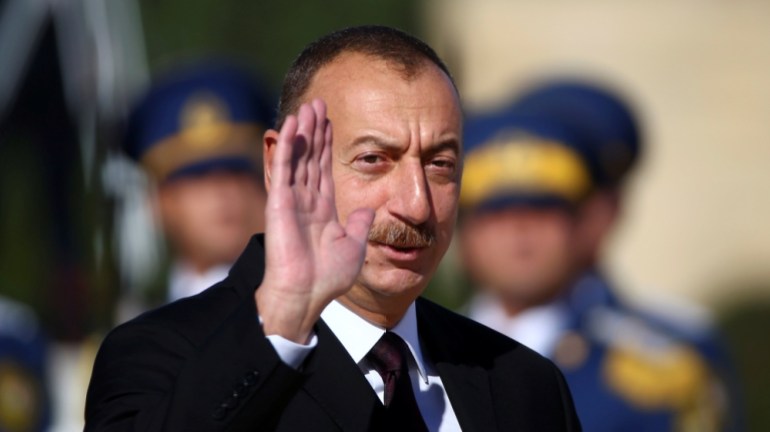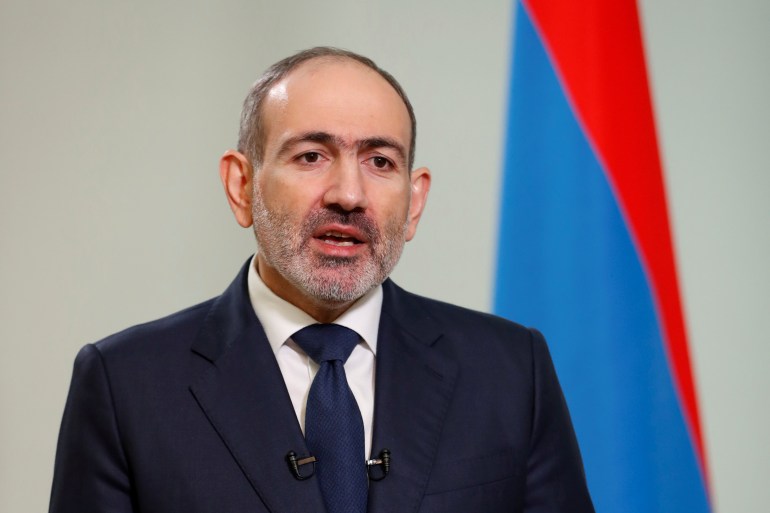Armenia, Azerbaijan leaders to hold talks amid renewed tensions
Pashinyan and Aliyev will meet on April 6 in Brussels amid a flare-up over the disputed region of Nagorno-Karabakh.

Leaders of Armenia and Azerbaijan have announced a meeting next week for European Union-mediated talks in Brussels, amid renewed tensions over the disputed region of Nagorno-Karabakh.
The Caucasus neighbours, which fought a war in 2020 over Azerbaijan’s Armenian-populated enclave, recently expressed readiness to launch negotiations on a “comprehensive peace treaty”, following a flare-up in Nagorno-Karabakh this month.
Keep reading
list of 2 itemsArmenian president resigns over lack of influence
“I plan to meet on April 6 in Brussels with the European Council President Charles Michel and Azerbaijani President [Ilham Aliyev],” Armenian Prime Minister Nikol Pashinyan told a cabinet meeting on Thursday.
He added that he hoped “to agree on all the questions related to the start of peace talks” with Baku.
“Armenia once again declares that it is ready to sign a peace agreement with Azerbaijan and to start negotiations without delay,” Pashinyan said.

Aliyev said the two countries “must advance towards peace and to sign, as soon as possible, a peace agreement”.
“Azerbaijan has tabled basic principles for the agreement,” he told a news conference.
The EU said that high-ranking Azerbaijani and Armenian officials met in Brussels on Wednesday to prepare for the summit.
The officials “reviewed the political and security situation and the full spectrum of issues between Armenia and Azerbaijan”, a statement said.
“Armenia and Azerbaijan will also address issues related to prospects for a peace agreement between them,” it added.
Ceasefire violation
The 2020 conflict that killed more than 6,500 people ended with a Russian-brokered ceasefire that saw Armenia cede swaths of territory it had controlled for decades and Moscow deploy peacekeepers to the mountainous region.
Last week, Yerevan and Moscow accused Baku of violating a ceasefire in the Russian contingent’s zone of responsibility.
They accused Azerbaijani forces of capturing the strategic village of Farukh in the Askeran region of Nagorno-Karabakh, where three Armenian soldiers were killed in a shootout.
Baku rejected the accusation, insisting the area was part of its internationally recognised territory.

On Monday, Armenia’s security council accused Azerbaijan of “preparing the ground for fresh provocations and an offensive on Nagorno-Karabakh”.
It urged Baku to “immediately start talks on a comprehensive peace treaty”.
Baku said it was ready for peace talks, with its foreign ministry pointing out that Azerbaijan had proposed that the two countries hold such negotiations a year ago.
Armenia has also warned of a possible “humanitarian catastrophe” in Nagorno-Karabakh after natural gas supplies to the region were cut off earlier in March for several days.
Ethnic Armenian separatists in Nagorno-Karabakh broke away from Azerbaijan when the Soviet Union collapsed in 1991. The ensuing conflict killed about 30,000 people.